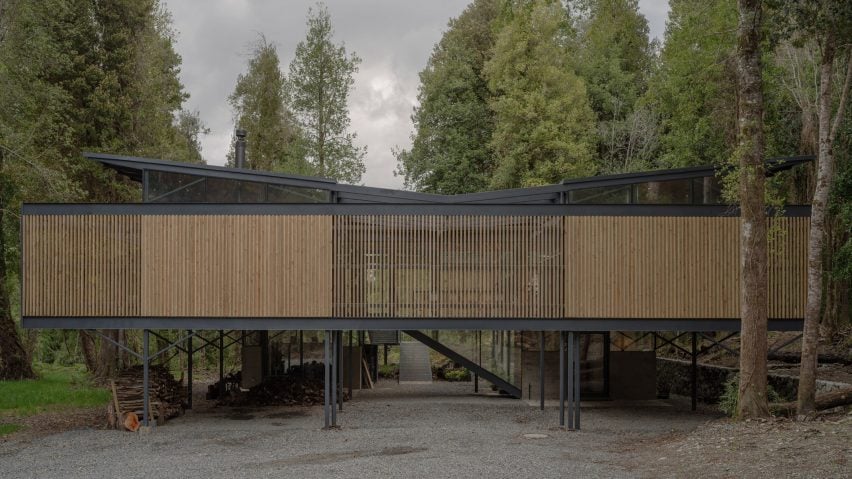
Hebra Arquitectos tucks Lone Oak House within wooded site in Chile
Chilean studio Hebra Arquitectos has completed an elevated home with steel pilotis and a V-shaped roof, aiming to create a building that "floats in the middle of the forest".
Hidden within a densely wooded area, the Lone Oak House is located in a river region in southern Chile.
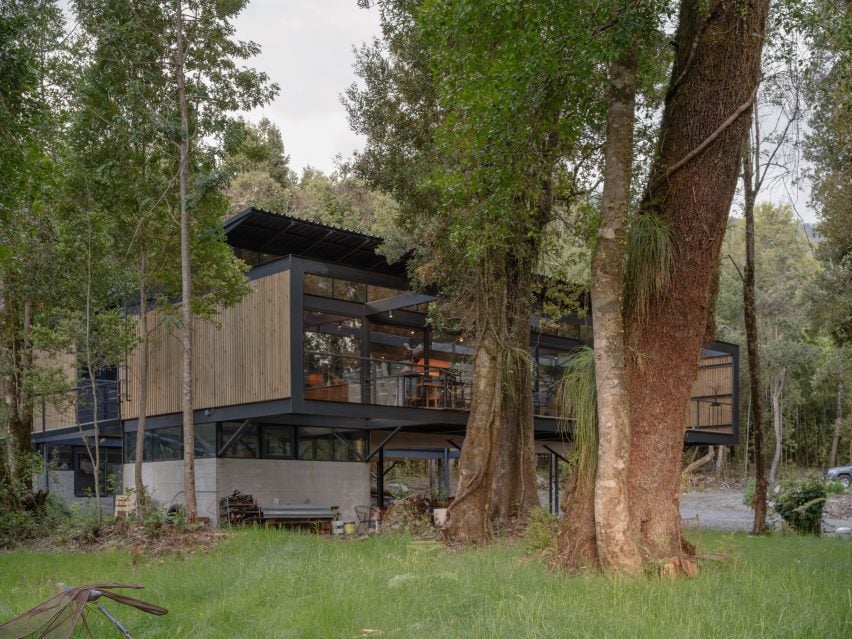
The project was commissioned during the Covid pandemic and was meant to serve as a second home for a psychologist and an artist.
However, the owners began telecommuting for work and decided to make the house their full-time residence.
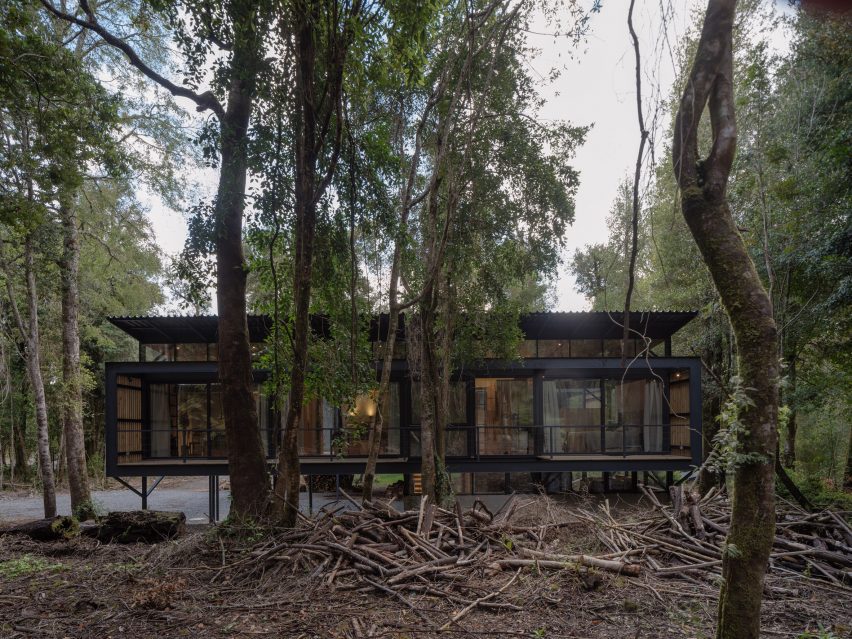
The design team had multiple goals for the project.
"The strategy was to elevate the volume looking for three main objectives: to avoid humidity, to obtain more illumination and to obtain the view to the top of the surrounding trees," said Hebra Arquitectos, a studio based in Santiago.
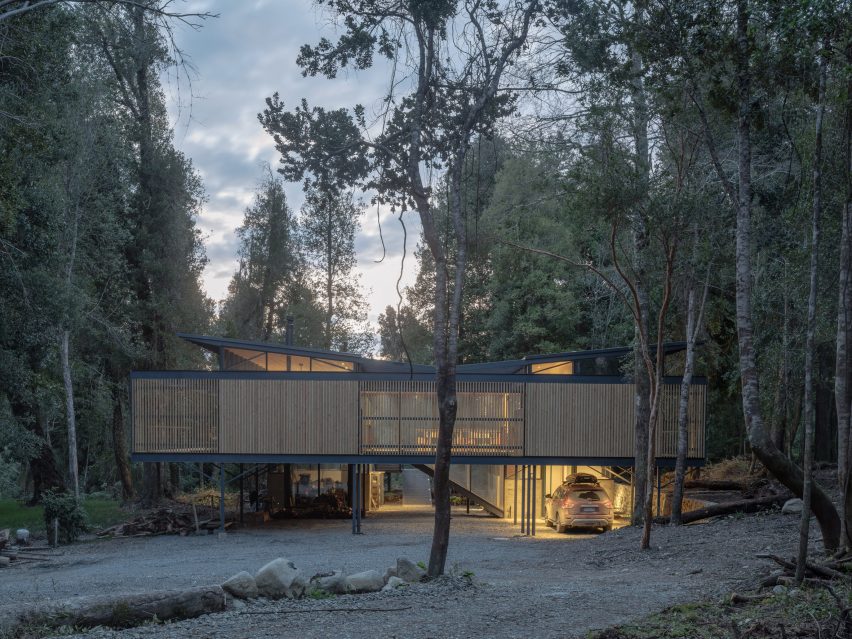
The architects conceived a two-storey house that is partly lifted above the site by steel piers. Concrete and black-painted steel were used for the structural system.
Exterior walls consist of cypress wood screens and large stretches of glass. Cypress was also used to clad the underside of the upper level.
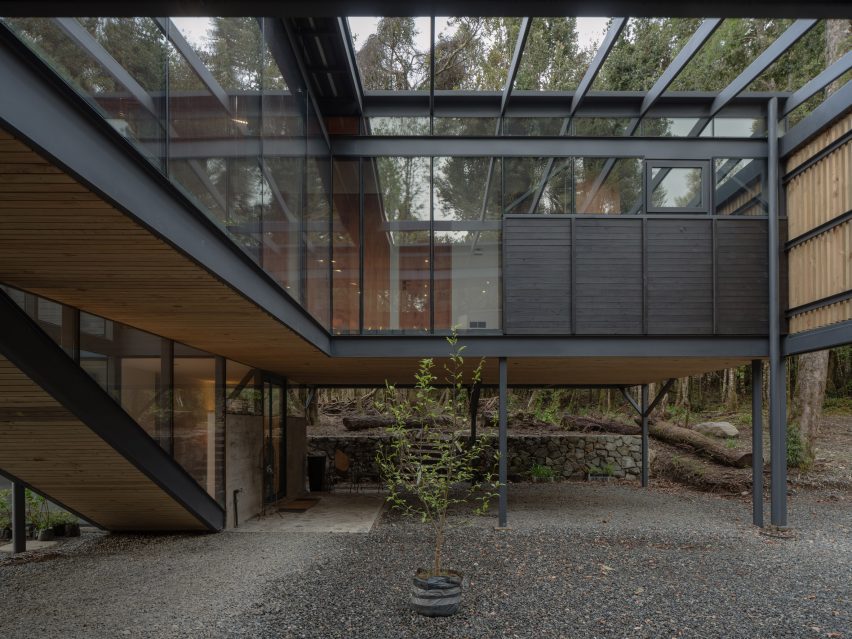
In terms of its form, the house was envisioned as a parallelepiped, which is a three-dimensional object whose faces are all parallelograms.
"The exterior expression of the house is a wooden parallelepiped that floats in the middle of the forest, seeking to have a direct relationship with it," the team said.
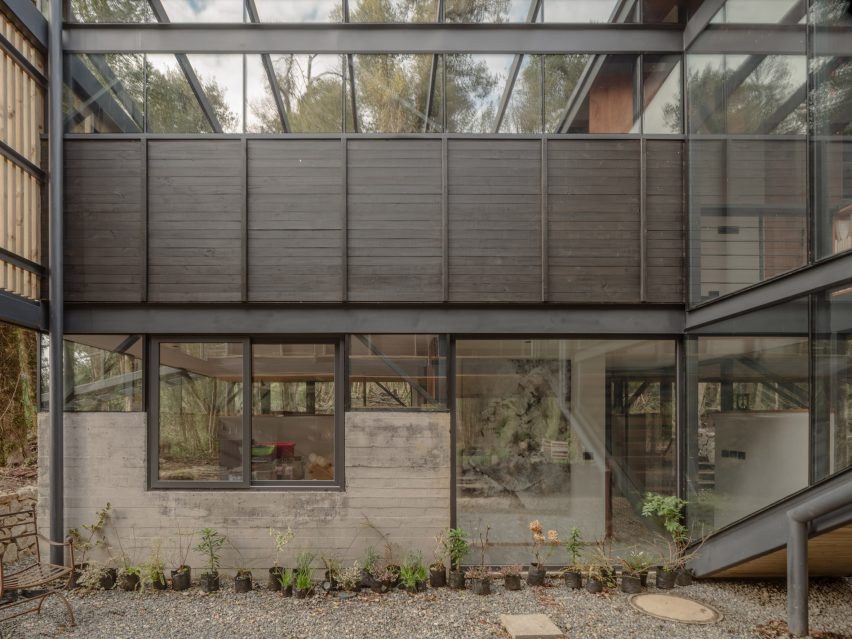
The house is topped with a corrugated metal, V-shaped roof that helps usher in natural light while expanding views for occupants. It also helps generate "an attractive spatiality in the interior".
The roof is supported by reticular beams, which have a weblike composition.
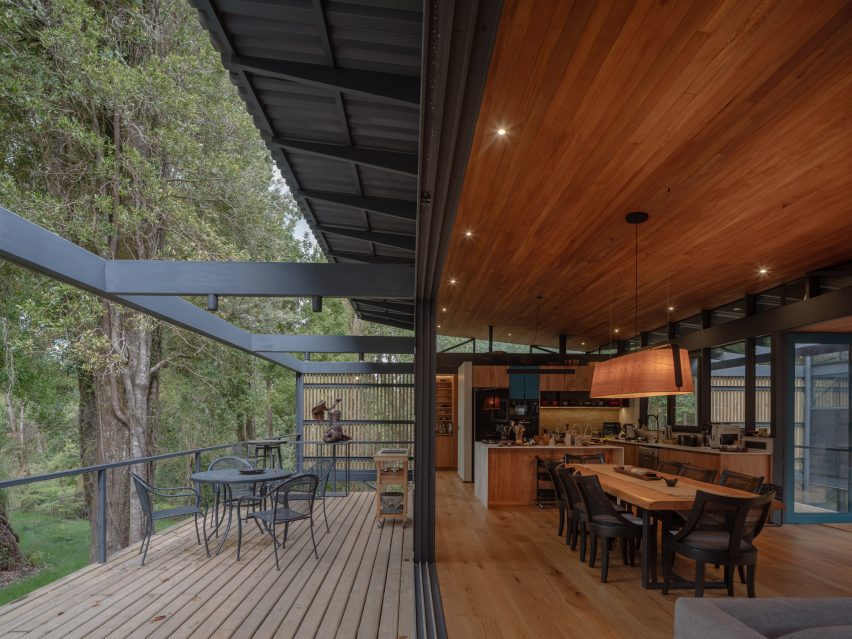
"Under the roof, reticulated beams with diagonals run around the entire perimeter of the house," the team said. "In the eaves, beams that end in a 'prism-shaped' point receive the bare roof above them."
Within the home, one finds a clear division between public and private spaces. Interior finishes include engineering oak flooring and olive wood siding for the ceiling and cabinetry.
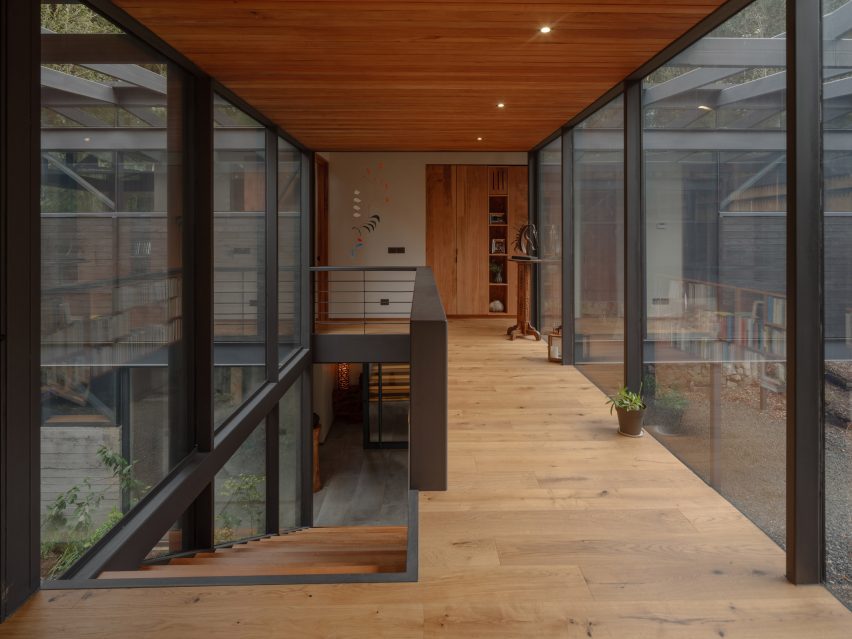
In addition to covered parking, the ground level features an office for the psychologist and a studio for the artist. Both workspaces are housed within core units made of concrete.
The upper level – which has an H-shaped floor plan – contains a common area on one side and three bedrooms on the other. A glass-enclosed bridge links the two zones.
"The idea of generating this shape, apart from establishing privacy between the bedrooms and the common area, was to create space for patios, allowing natural light to enter," the team said.
In the common area, a retractable glass wall provides a fluid connection to a terrace, which looks upon the trees.
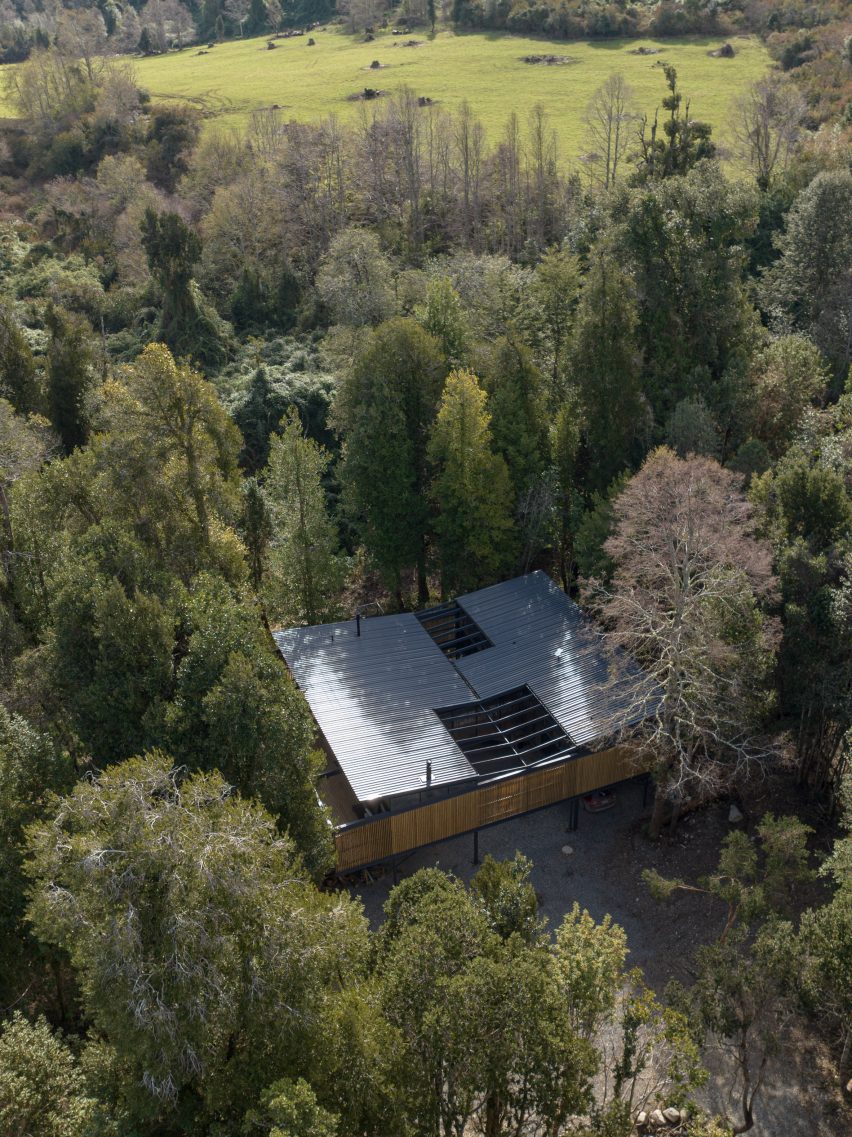
An enclosed staircase, along with an exterior metal ramp, connects the upper floor to the ground level.
Other projects by Hebra Arquitectos include an elevated cabin that was designed to accommodate a person in a wheelchair and a T-shaped house that has stylistic elements derived from barns.
The photography is by Marcos Zegers.